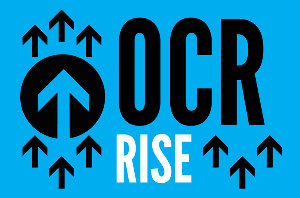Mixed reactions to OCR increase
The RBNZ's move to hike the OCR will prove devastating to many small business, according to the Auckland Chamber of Commerce.
Wednesday, October 6th 2021, 4:01PM  2 Comments
2 Comments
by Eric Frykberg

The central banks raised the rate for the first time since 2014.
It said the Official Cash Rate (OCR), rechistened the Monetary Policy Review (MPR), would rise from 0.25% to 0.50%.
The bank cited strong economic growth, full employment and inflation that was busting though its desired maximum towards the 4% mark.
But the chief executive of the Auckland Chamber of Commerce, Michael Barnett, said this was the worst possible time for the rate to be going up.
“I say that because there is a significant number of small and medium business out there which are cash poor, which are stressed financially, and which have incurred a huge amount of debt.
“Any additional cost for them is going to be harmful.”
In its statement, the Reserve Bank acknowledged that Covid 19 restrictions had badly affected some businesses in Auckland and a range of service industries more broadly – an apparent reference to the tourism industry.
But the broad thrust of the statement put this to one side and stressed New Zealand's overall economic strength.
Barnett said the Reserve Bank's optimism applied mainly to large export industries with strong balance sheets, but SMEs were suffering.
However another business group took a much more positive view.
Business New Zealand said the Reserve Bank had little option but to move on interest rates now, given the continued rise in inflationary expectations.
“The risk of not moving now on interest rates is that the RBNZ would have had to go much harder next year.” said its chief executive Kirk Hope.
Meanwhile, the rise is far from the end of the matter, according to the Kiwibank chief economist, Jarrod Kerr.
“This is just the beginning, we are expecting many more to come,” he said.
“We think it will end at about 1.5% by this time next year.”
Kerr said this could push retail rates that are currently 2% to 4% to between 4% and 6%.
That could be a shock to people who were new to home ownership and had never lived through a rate hiking cycle.
“The era of ultra low interest rates is definitely behind us.”
The Reserve Bank also said more rates rises would come, but gave no details.
ANZ has already moved to lift its floating rates 15 basis points. By contrast, the ASB said it would keep base business rate and its variable mortgage rate on hold.
However, most commercial rates have already moved up in anticipation of the RBNZ announcement, especially as it indicated two months ago that it wanted to raise rates and only the Covid lockdown was staying its hand.
| « What the RBNZ said about increasing the OCR | Vincent Capital adds a South Island BDM » |
Special Offers
Comments from our readers
I wish one, just one economist would take the time to explain to the general public how 'money' (fiat) is actually generated, and expose the farse that these central banks make us live by!
The RBNZ has debt denominatd in NZD, no foreign currency dependency, along with a Positive Swap line to the US Fed IF we need any of their currency. The RNBZ can print as much as it likes of our NZD, as our debt is denominated in NZD. The RBNZ creates our money literally out of 'thin air' it has no physical ties to anything accept an accounting record on the treasury balance sheet, again denominated in NZD's.
What this OCR raising will do is cause damage to NZ businesses and households, with no real reason for raising it apart from being 'the first' from the club!
Sign In to add your comment
| Printable version | Email to a friend |




The real confluence of the air-conditioning and the sewer line is going to be when the people who took on all the extra hire purchase and lay-buy schemes (when the rates were low) realise that their home loan rates (and repayments) are going to go up. Fast. Rates doubling in 6 months?
Surely the government and the Reserve Bank would have seen this collision. But I guess they don't care as long as people keep spending money that they don't have on stuff they don't need, to impress people they don't know (or like).
The real losers here won't be the banks, but more than likely the finance companies, and those who invested their hard-earned cash in them. Just like the elderly investors seeking better returns than property or term deposit rates to fund their retirement.
Who said history never repeats?